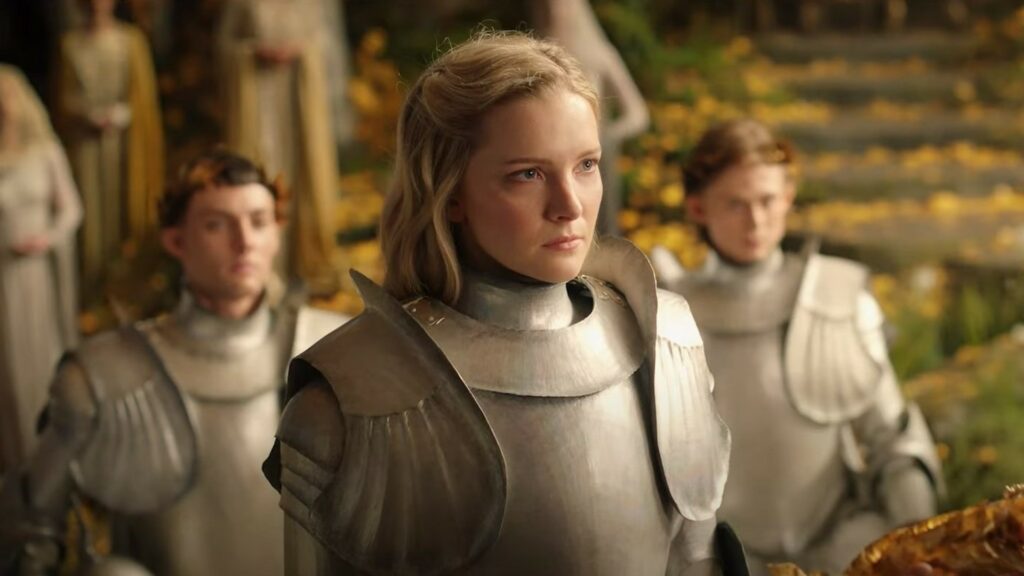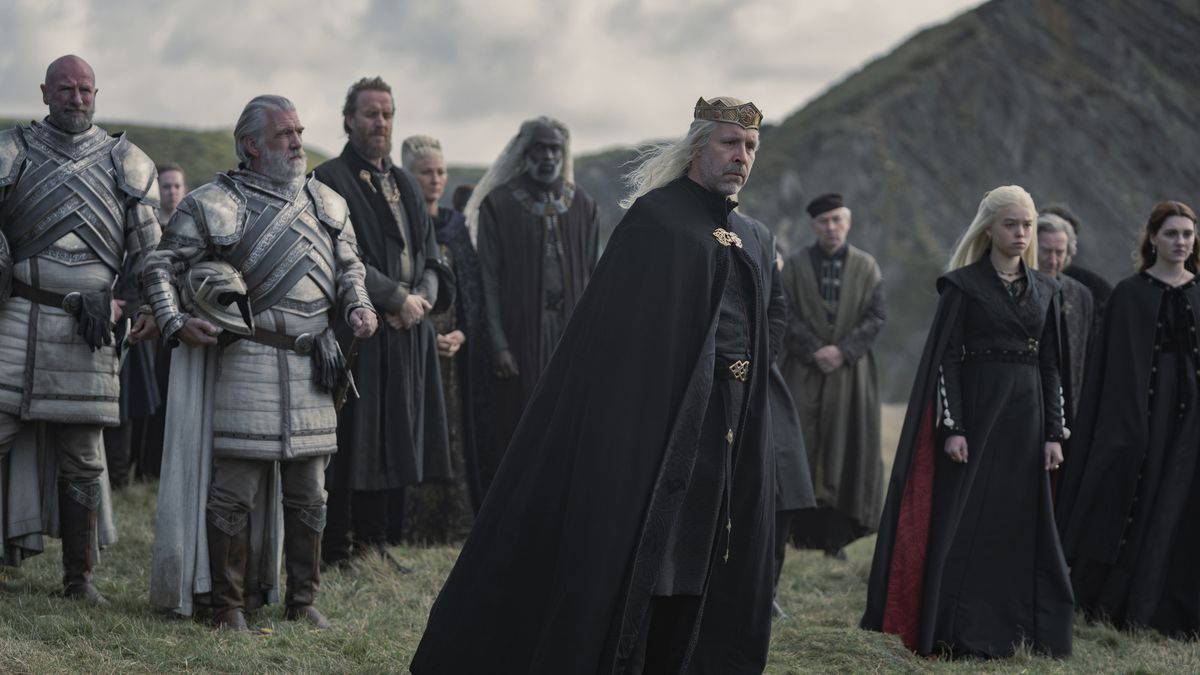Now the dust has settled on the two fantasy mega series, the digi-verse seems to have formed consensus on a clear winner: the vibrant and bloody dialogue, action and intrigue of HBO’s House of the Dragon seems to have trumped the more considered theatrics of Amazon’s The Rings of Power. But beyond the competing production values or public preference for grit over gesture, is there a more subtle calibration for success in how these alternative universes speak to our own times?
Looking to the point in time in our own world when these fantasies were created is telling. The Rings of Power is based on JRR Tolkien’s epic novel The Lord of the Rings, the first book of which was published in 1954. Like the stories he wrote, Tolkien’s world was relatively binary: he’d just lived through a war against a very realised evil and was writing during a chilling Cold War which pitted the liberal free ideas of the West against the totalitarianism of the Soviet Bloc. Likewise, in his words there are clear identities, agendas and battle lines: Mordor vs Middle Earth, wisdom vs powerlust, light vs darkness and goodies vs baddies.

By contrast, The House of the Dragon is spun from George RR Martin’s A Song of Ice & Fire novel series (first published in 1996) on which the TV series Game of Thrones is based. The first book of the House of the Dragon series, Blood & Fire, was published in 2018. Martin’s contemporary world is not bipolar. The Cold War has melted into a globalised, multipolar one. Hence the means to power for its protagonists has become more diverse. There are weapons of mass destruction such as dragons but also subterfuge, court politics and terrorism such as the use of the outlawed blood magic.
Perhaps we recognise Martin’s world as more like our own, while Tolkien’s echoes the timeless themes that dominated the big screen productions of the last generation. In House of the Dragon and Game of Thrones, intrigue and clumsy diplomacy, as well as power plays and opportunism are the winners. In Middle Earth the evil is obvious, the others must ally against it or face extinction, the threat is existential and perennial. In Westeros the threat is internal and manmade – the stage is set for a great, but not necessarily good, man or woman to seize the initiative.
Today we can see some of those fundamentals in society: individualistic ambition, consumption, choice. Inherent truths seem fewer and politics rewards more fluid alliances. The petulance, entitlement, greed and disdain for responsibility in the likes of King Joffrey echo the worst excesses of today’s unprincipled populist politicians.
Like all great literature these works, and their televisual renderings, speak to their times. But while we prefer dragon riders to magic rings today, they both say something about the human condition.

